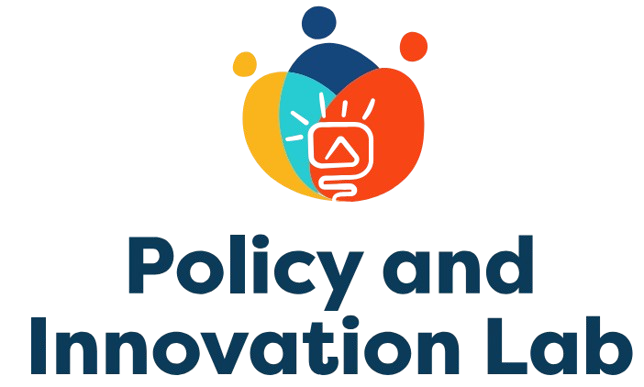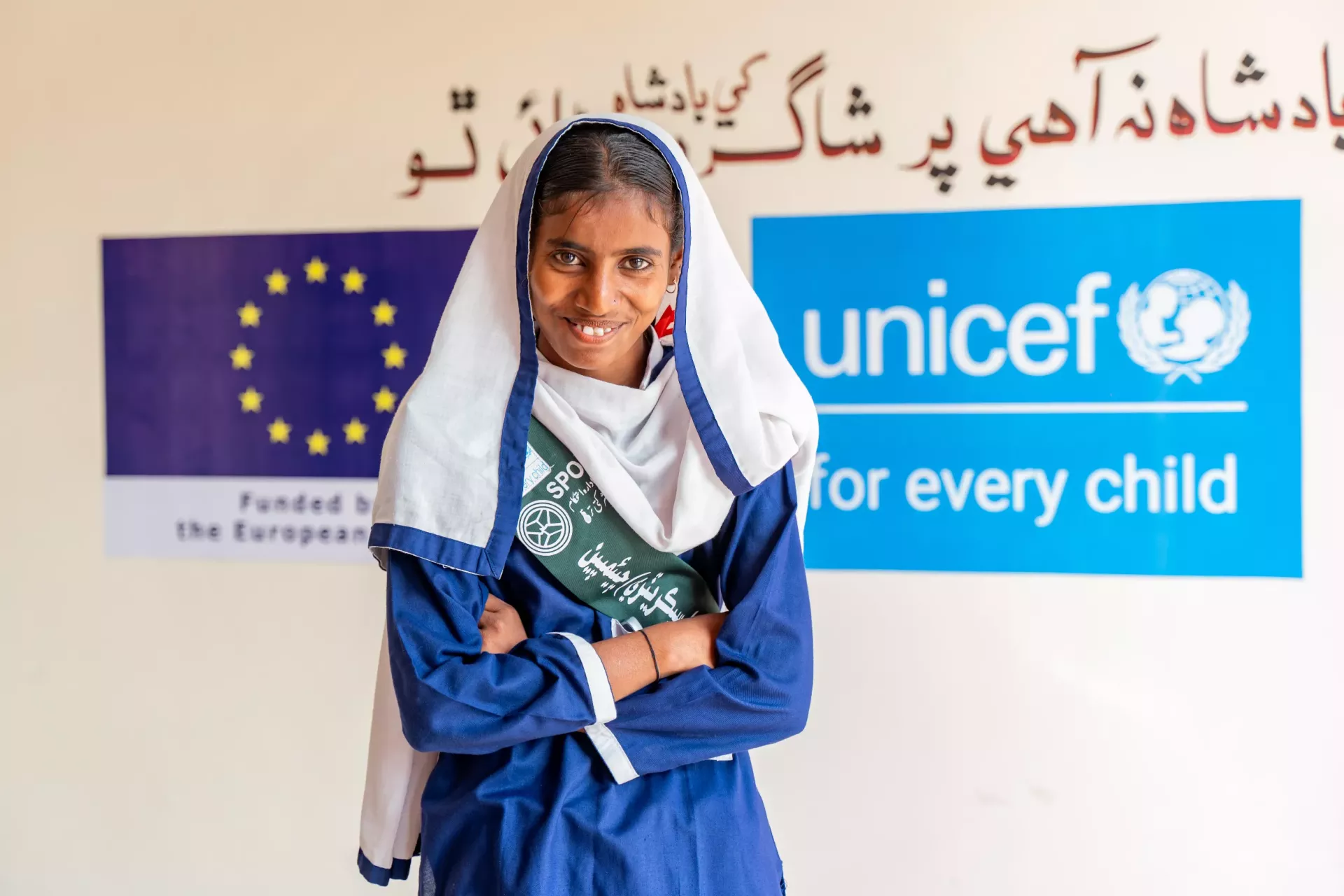In partnership with the European Union, UNICEF is helping to transform the lives of girls in rural Sindh as they become champions for change
Dadu district, Sindh: At first glance, Shaista Mallah (13) seems quiet and reserved, her remarkable resilience hidden behind a shy smile. She joined the Grade 6 class in Jeand Lashari Girls Lower Secondary School in August 2024.
Two years earlier, devastating floods washed away her family home and all their belongings in Dost Muhammabro village, leaving her three brothers unemployed. Shaista’s father had recently passed away and her family was forced to seek refuge in a public school before moving to her uncle’s house in Dadu for several months before coming back to rebuild their home.
Her mother now takes care of four children while her brothers seek work to support the family.
These were dark times for Shaista and her family.
But there was also hope. After all the loss, displacement and suffering; Shaista found a happy place where she was welcomed with open arms. The school offered a safe space, where she found her voice.
“With generous support from the European Union (EU), Girls School Jeand Lashari was one of 210 schools to receive a package of full support after the floods hit. This wholistic approach did not only meet urgent needs but also strengthened community resilience in the face of future shocks through school rehabilitation, educational supplies and teacher training, including on Mental Health and Psychosocial support. Solar panels have provided a sustainable solution to the frequent power cuts that used to disrupt the girls’ learning. Youth Clubs, established to empower students with leadership, life skills and hygiene awareness have further helped strengthen social cohesion between host communities and flood victims from neighboring communities, helping them prepare themselves and others when disaster strikes.”
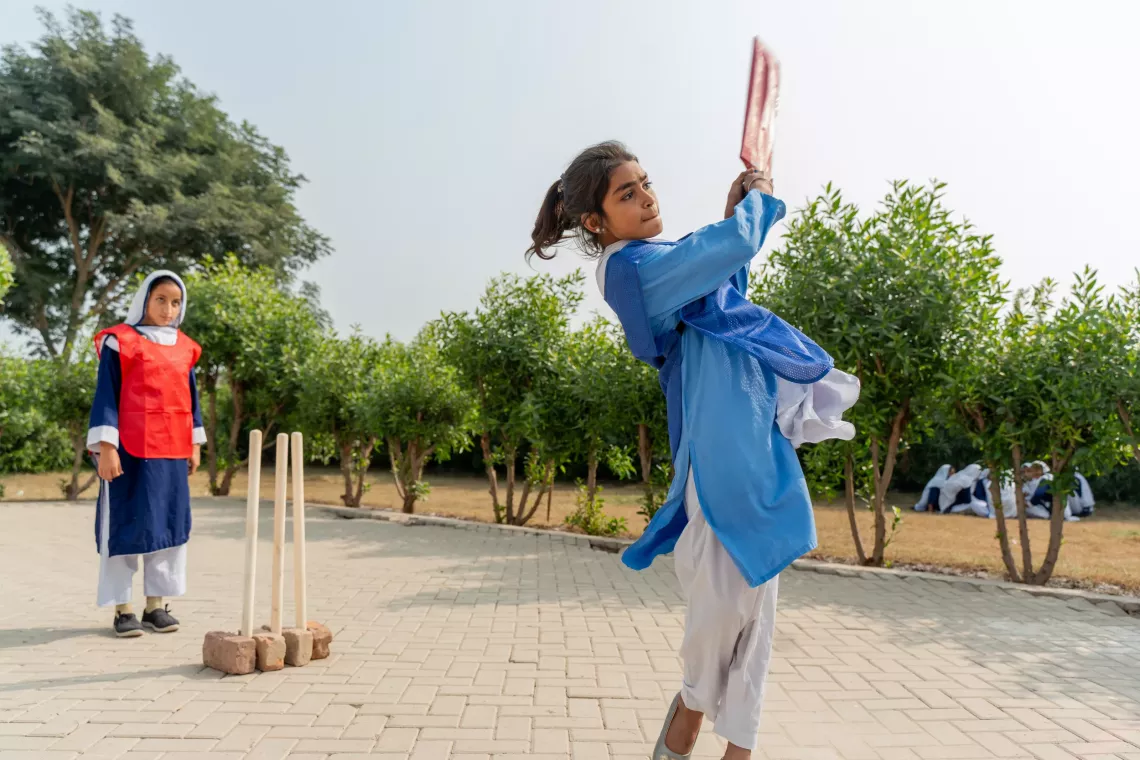
The newly painted walls, colorful classrooms and motivational quotes create a feel-good, vibrant atmosphere where Shaista and her friends are excited to learn every day. The weather is lovely, perfect for the girls to enjoy a game of cricket after finishing their classes.
“Shaista is very good at her studies. She is active and determined. She was very traumatized when she first arrived after the loss of her father and her home,” said Ms. Anny Mallah, Shaista’s class teacher. “The youth club has really improved her confidence; she feels empowered now. The word champion alone was enough to give her the boost she needed,” added Anny.
Shaista’s determination saw her elected as General Secretary of the school’s Youth Club, an impressive group of young girls empowered to create positive change in the school grounds and beyond. Shaista and her friends are beaming as they each explain their roles, wearing their club sashes with pride.
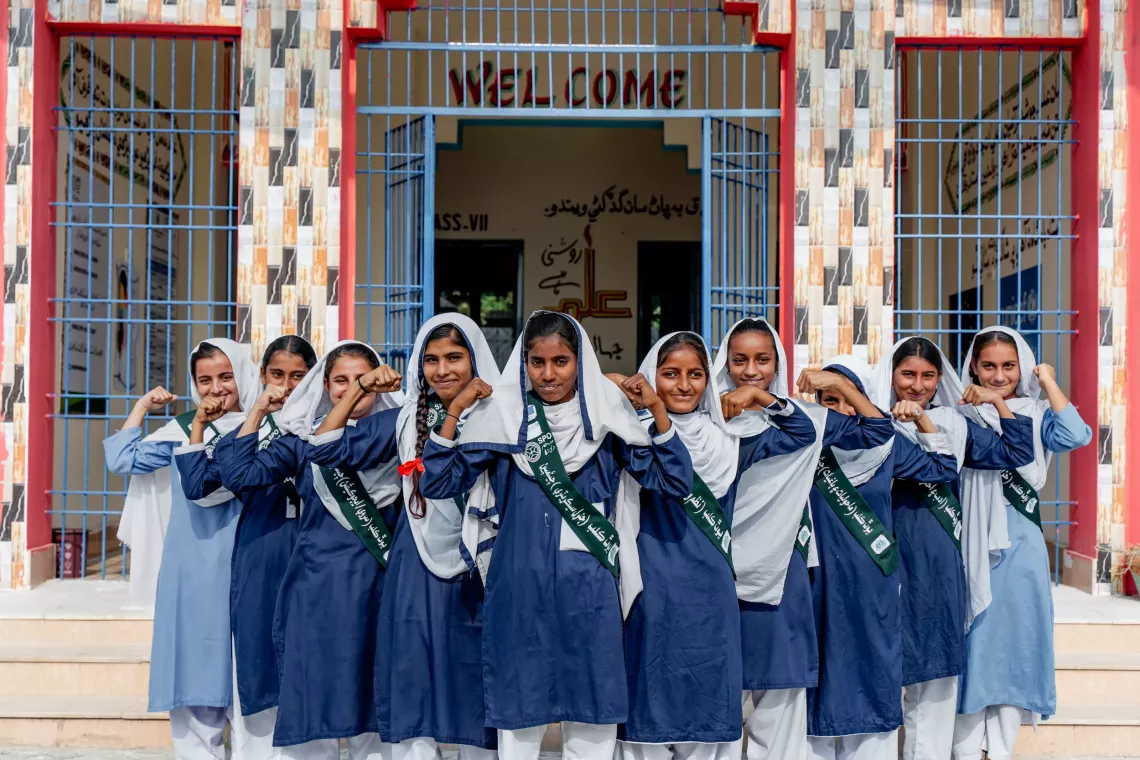
“In the Social Cohesion training, we learned about critical thinking, decision making, disaster risk reduction, hygiene practices and food safety and how to improve community relations during emergencies,” said Hira, captain of the Youth Club. “I shared what we learned with the youth club members. They are now sharing everything they learned with their families and neighbors.”
“Now I know how to prepare for an emergency. I learned all of this in the club. I tell my family and neighbours that we have to plan together to protect our animals and food items and the importance of healthy hygiene practices to protect us from diseases,” said Shaista.
“Shaista was not able to go to school after we left our home. Her older sisters did not go to school, but I want Shaista and her younger sister to learn. She is gaining more confidence every day, and I can see she is different from the other girls who have dropped out,” said Masmat Nimani, Shaista’s mother. “We are very poor; I want her to study and become something in life.”
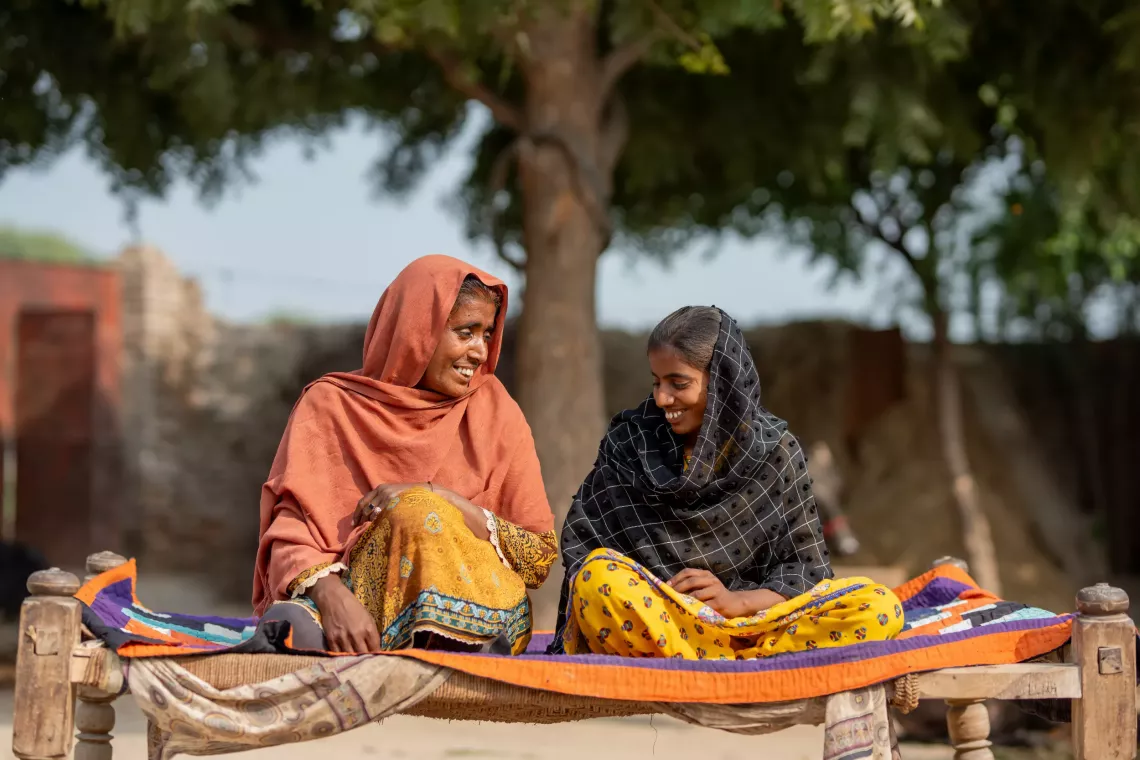
“I want to finish my education and become a lawyer so I can defend poor people,” said Shaista.
With funding from the European Union under the Service for Foreign Policy Instruments (FPI), UNICEF and the School Education and Literacy Department, Government of Sindh assessed 265 damaged schools in Sindh. So far, 88 schools have been rehabilitated with the remaining underway. Nearly 1,000 teachers received training on multigrade Teaching approaches and Mental Health and Psychosocial Support (MHPSS). The project established over 100 Youth Clubs, empowering youth to support their communities’ resilience.
Almost 27,000 children in Sindh, out of which almost half are girls, have benefitted from the project’s support. Creating a caring learning environment is empowering flood survivors like Shaista to champion change in her community, despite the hardships she faces.
Author:
Hiba Ali
